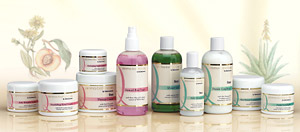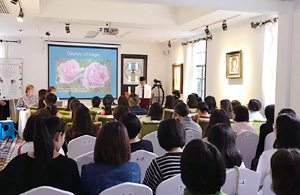Mindfulness – What It Is And How To Do It
 Mindfulness is a term that people often come across when learning about meditation, stress busting techniques, or anxiety treatments.
Mindfulness is a term that people often come across when learning about meditation, stress busting techniques, or anxiety treatments.
It is used in many wellness practices, including aromatherapy, yoga and, as mentioned, meditation. However, it is also a key tool in cognitive behavioural therapy and is used to treat depression and anxiety.
In the modern world it’s all too easy to rush through life without stopping to smell the roses. Surprising as it sounds, paying more attention to the ‘here and now’ of the present moment can help improve your mental wellbeing.
Mindfulness defined
Mindfulness is defined as being present in a given moment and being attentive to sensory information. By focusing on a touch, sound, smell, image or taste, the brain is prevented from wandering. This helps people to live in the moment and be more alive. In many ways this is very similar in principle to the art of meditation.
For this reason, many people define mindfulness as ‘paying attention on purpose’. It’s also an emotionally non-reactive state. By focusing on sensory stimulation, any judgements or emotions are simply released and let go. This doesn’t mean people should be unaware that certain things are pleasurable or difficult, but more that they should not react negatively to them with their emotions.
Benefits of mindfulness
By preventing the mind from wandering, together with stripping away the emotional content of any given situation, we feel less stressed, emotionally bogged down, or anxious about what could potentially happen in the future. Mindfulness has also been shown to be helpful with overcoming loneliness. This means we’re much more capable of living in the moment and enjoying life for what it is, rather than worrying about what might go wrong. Taking this approach means we see and hear things we would have otherwise missed. In this way, mindfulness can be particularly useful when we need to listen to others and observe lots of complicated information.
How to be mindful
The best way to practice mindfulness is to start by paying attention to your body. Observe how your body feels; is it comfortable, or do you feel discomfort somewhere? This will help you to become more aware of your senses too. What can you hear? What can you smell? What can you see? What can you taste?
Once you develop a greater awareness, start to focus on just one particular thing. Some people prefer one sense to the other, so experiment to determine which one you find it easiest to concentrate on at first. You’ll soon be able to become aware of several senses at the same time with a little practice.
When you’ve found what works for you, spend a minute or so focusing on it. If you find your mind wandering off onto other things, gently pull it back to your chosen subject. Repeat this until you can do an entire minute without ruminating on other things. You’ll no doubt find this is much harder than it sounds at first, but once you’ve mastered it, you’ll be able to re-centre yourself using this technique wherever you are. This can be a very useful skill.
If you plan to use mindfulness as part of meditation you’ll need to learn how to focus your mind for a longer period of time. Many people find relaxing music helpful to get them in the mood, as it’s a continuous external sound that can hold the mind’s attention whist you physically wind down. However, you must choose the appropriate type of music for this job.
Combining mindfulness and aromatherapy
Combining aromatherapy and mindfulness is a brilliant way to relieve stress and rejuvenate the mind and body. Whether you opt for a massage, or just use essential oils with a vaporiser or burner during meditation, you’ll find the experience heightened by combining it with mindfulness. You can even apply the essential oil on the wrists and neck after dilution.
It’s important to remember that essential oils must first be diluted before applying them to the skin. Add five drops of your chosen essential oil to 10ml of carrier oil or lotion. Choose essential oils for relaxation and sleep that have soothing properties, such as bergamot, lavender, roman chamomile, sweet marjoram, or ylang ylang. Alternatively you could choose essential oils that are stimulating to help you focus, such as basil, juniper berry, rosemary, or peppermint.
Making mindfulness part of your life
Mindfulness can be practiced at any time, anywhere, and this makes it incredibly useful in daily life. Just remember that you have the power to focus your thoughts at all times, no matter how stressful a situation may be. It just takes a little practice.
You should try to take some time out of every day just to be mindful. Straight after work is the ideal moment, as it means you can shed the worries of the day and be present at home with your family. Similarly, taking some time before work to get centred is a great way to energise yourself for the busy day ahead.
Copyright © Quinessence Aromatherapy Ltd 2021. Written by Sue Charles

 Here are some essential oils to help you relax and practice mindfulness;-
Here are some essential oils to help you relax and practice mindfulness;-
































